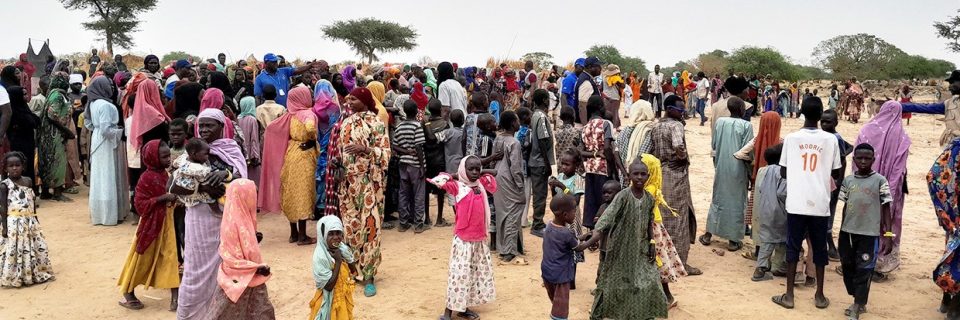Ali Abdula, 16, guides his donkey carrying his two younger siblings, both suffering from malnutrition, past people lining up to register for aid at a camp for IDPs in Agari, South Kordofan, on 17 June, 2024. AFP – GUY PETERSON
Severe food shortages have spread to 14 regions across Sudan, including previously unaffected areas, with over half of the country’s population facing “crisis or worse” conditions, says the United Nations.
Some 8.5 million people in Sudan are now facing extreme food shortages and the situation could lead to famine if the civil escalates, the UN’s World Food Programme warned Thursday.
It follows a report from the Integrated Food Security Phase Classification (IPC) initiative, which brings together more than a dozen UN agencies, aid groups, governments and other bodies.
The IPC report, published Thursday, found that 755,000 people were facing the worst level of starvation, known as “phase five”, in 10 provinces where the fighting is heaviest.
They include the capital Khartoum, the regions of Darfur and Kordofan, and El Gezira province, which was once dubbed Sudan’s breadbasket.
“The conflict has not only triggered mass displacement and disruption of supply routes, market systems and agricultural production, it has also severely limited access to essential humanitarian assistance, exacerbating an already dire situation,” the report said.
According to the assessment, the number of people experiencing a hunger crisis rose by 45 percent to 25.6 million, or more than half the population, in the lean season lasting to September, when less harvested food is available.
More than eight million people are classified in the “phase four” level whereby food shortages could lead to acute malnutrition and death or require emergency coping strategies.
Preventable disaster
Sudan was thrown into chaos in April last year when fighting broke out in the capital between the country’s military, led by General Abdel-Fattah Burhan, and the Rapid Support Forces (RSF) paramilitary group.
It has since spread to other parts of the country.
“This disaster is man-made and was preventable,” Mohammed Qazilbash, Sudan country director for humanitarian group Plan International, said in a statement.
“Our time to act was six months ago – it is unconscionable that there are now more than eight million people on the brink of famine.”
The conflict has killed nearly 16,000 people, displaced millions, and caused a devastating humanitarian crisis in the country, according to the UN.
Its human rights experts say both warring sides have used food and starvation as a weapon.

